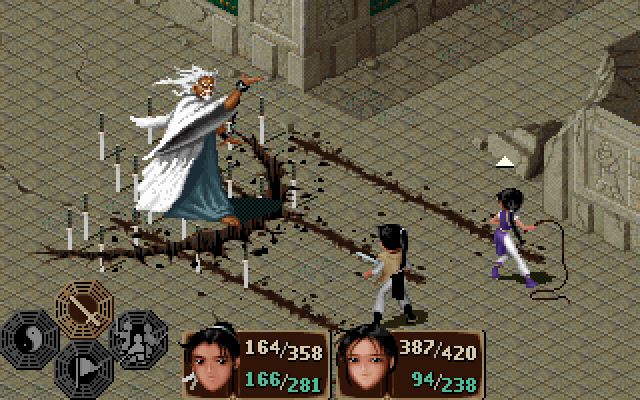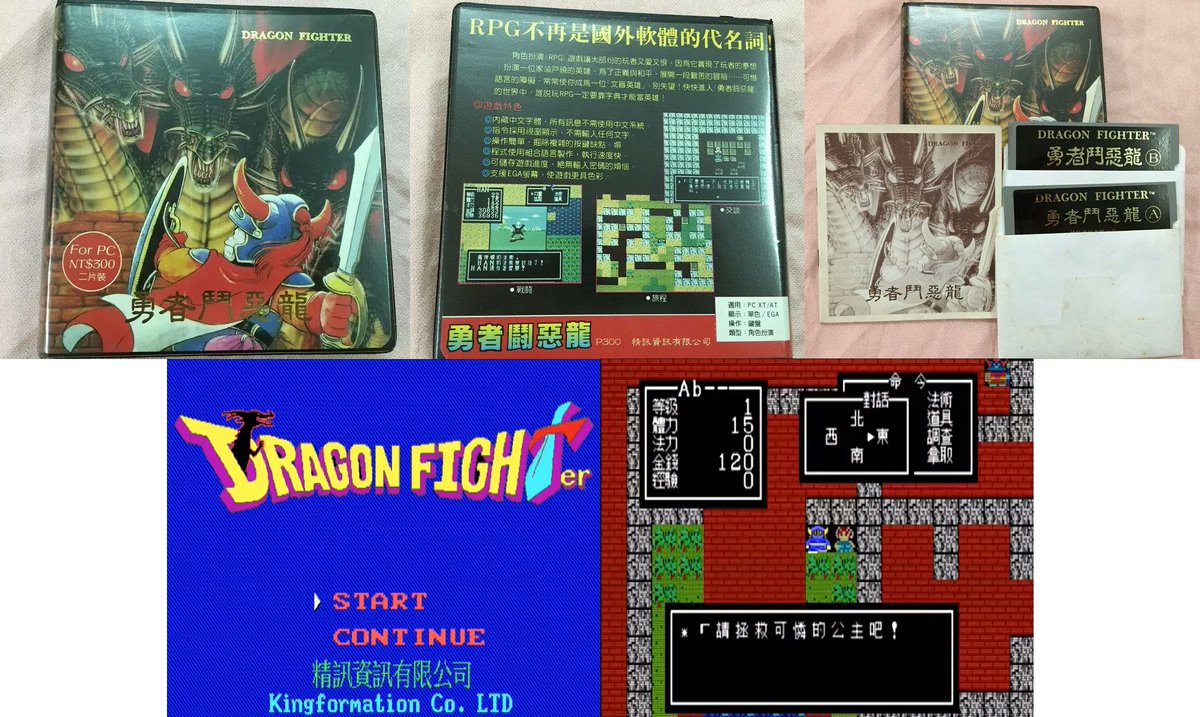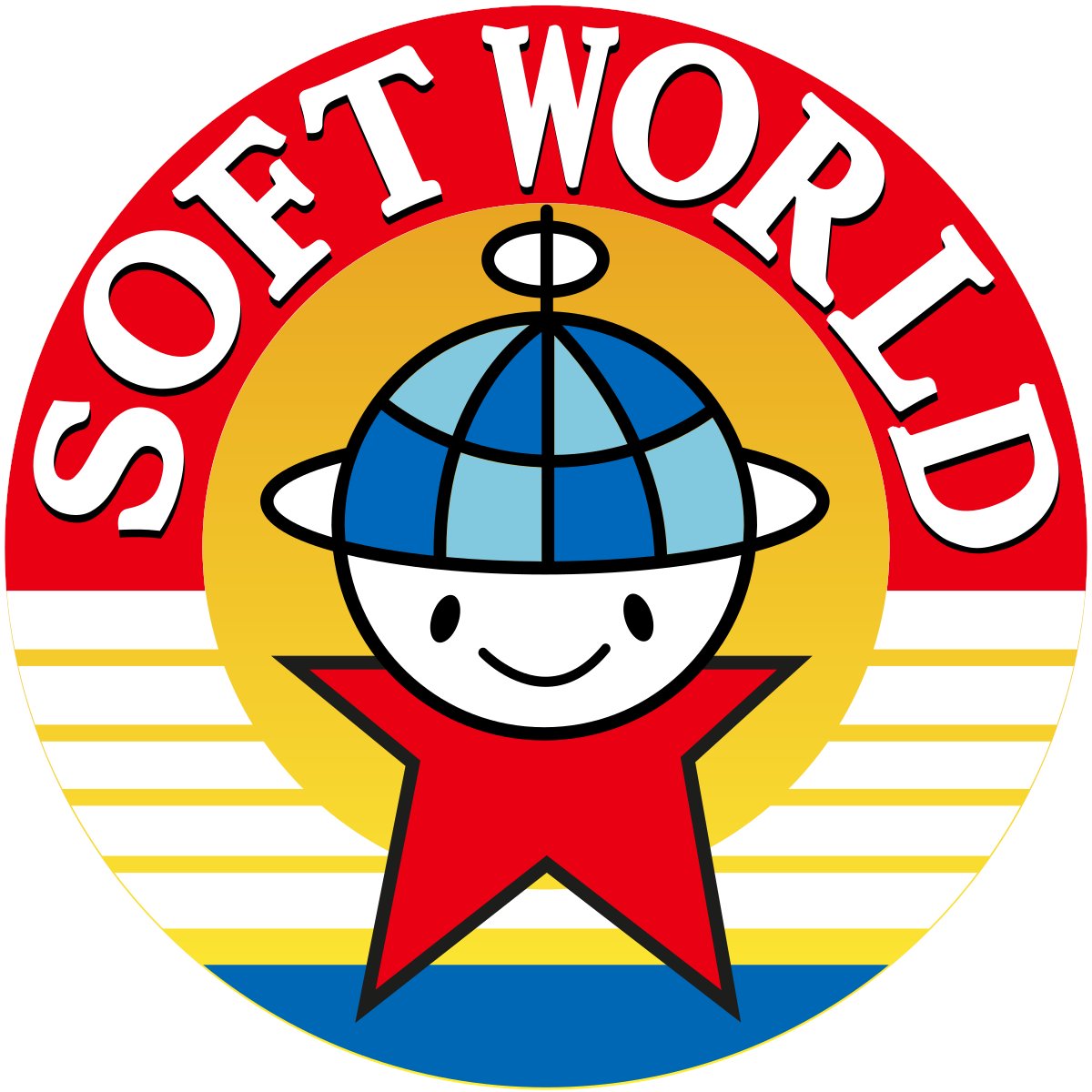Of all the research I did, the history of Chinese RPGs is my favorite. It blew my mind how over 200 PC RPGs were created in the 90s and early 2000s, an output rivalled only by Japan and the US!
And yet, we never talk about these games... So let me give a very brief overview🧵



And yet, we never talk about these games... So let me give a very brief overview🧵




In Taiwan in the late 80s, people began importing foreign PC games and localizing them - first translating manuals, then fully translating or even porting them, like their Dragon Quest for DOS. These groups grew and even made publications like Jingxun Computer Magazine/ 精訊電腦 





In 1989, the US coerced Taiwan to follow international copyright laws, so these games became illegal. But the experience & network acquired was enough to make these groups became "normal" publishers - like Softstar (大宇資訊) and Soft-World (智冠科技) - and make their own games. 



By the early 90s they had already many MS-DOS RPGs like Xuan-Yuan Sword (軒轅劍), Legend of the Chivalrous Hero (俠客英雄傳) and Book of the Sword Saint (天外劍聖錄). These mixed mixing traditional JRPG gameplay with Wuxia & Xianxia, inspired by novels from authors like Jin Yong. 





Things would really get going in 1995, with Legend of Sword & Fairy / Chinese Paladin (仙劍奇俠傳)
A polished & emotional RPG about a man who marries a mysterious young girl but loses his memory, it's a landmark that set the standard for Chinese RPGs - their Ultima/Dragon Quest



A polished & emotional RPG about a man who marries a mysterious young girl but loses his memory, it's a landmark that set the standard for Chinese RPGs - their Ultima/Dragon Quest




I can't overstate what a landmark this game is:
-It got 1 remake, 8 sequels, over 20 spin-offs and several TV adaptations
-From 1996 to 2002 It was voted one of the best games ever on a local magazine
-It directly inspired literature, especially webnovels: sixthtone.com/news/1008975
-It got 1 remake, 8 sequels, over 20 spin-offs and several TV adaptations
-From 1996 to 2002 It was voted one of the best games ever on a local magazine
-It directly inspired literature, especially webnovels: sixthtone.com/news/1008975
What follows is a golden age of RPGs that would last until the early 2000s, with over 200 DOS & Windows games.
Yes, a lot of them are wuxia/xianxia inspired, often adapting famous novels, but you also had sci-fi, military and modern-day RPGs, as well as some Tolkien-esque ones.



Yes, a lot of them are wuxia/xianxia inspired, often adapting famous novels, but you also had sci-fi, military and modern-day RPGs, as well as some Tolkien-esque ones.




Some of these are truly amazing and it's a shame they never got translated.
I can legit say stuff like Dance of the Maple Leaves, Beyond the Clouds and Mountains, Legend of Wulin Heroes and Castle: The Forbidden Divines would be worldwide classics if we had played them back then



I can legit say stuff like Dance of the Maple Leaves, Beyond the Clouds and Mountains, Legend of Wulin Heroes and Castle: The Forbidden Divines would be worldwide classics if we had played them back then




Unfortunately, only a handful were ever released abroad. Titles like Blade & Sword (2002), Prince of Qin (2002) and Seal of Evil (2004) were more action-driven, so got English & Russian releases by small publishers.
Prince of Qin was promoted as "Diablo with a history lesson" :P



Prince of Qin was promoted as "Diablo with a history lesson" :P




Like in the West, this golden age of PC RPGs would soon end. The 00s brought increased development costs, thanks to 3D, voice acting, soundtracks, HD graphics, etc. Plagued by piracy and with no access to consoles or foreign markets, so they shifted to the booming MMORPG world. 

Only a handful of single-player RPG survived during the late 2000s and most of the 2010s - usually big series like Chinese Paladin, Xuan-Yuan Sword, Fantasia Sango and GuJian.
They got many praises for their stories, but were often considered outdated next to foreign RPGs. :/



They got many praises for their stories, but were often considered outdated next to foreign RPGs. :/




Thankfully, a lot has changed recently. Steam took over PC gaming in China, revolutionizing distribution. Games like GuJian 3, Scroll of Taiwu and Tale of Immortal each sold over 1M - mostly to Chinese gamers, but every day new games are released, and translations get more common 





There's still a lot of barriers - from poor translations and non-existent Western PR to some jank, cultural barriers and prejudice.
Still, Genshin Impact proved Chinese RPGs can be global AAA hits with excellent localization, and I expect things to only improve from here onwards
Still, Genshin Impact proved Chinese RPGs can be global AAA hits with excellent localization, and I expect things to only improve from here onwards

Thanks for reading! If you want to read more on this, this thread is based on this article, which goes into detail on many of the games mentioned here: felipepepe.medium.com/before-genshin…
And if you want to try one of these games, Chinese Paladin 1 has an excellent English fan-translation :)
And if you want to try one of these games, Chinese Paladin 1 has an excellent English fan-translation :)
• • •
Missing some Tweet in this thread? You can try to
force a refresh











































